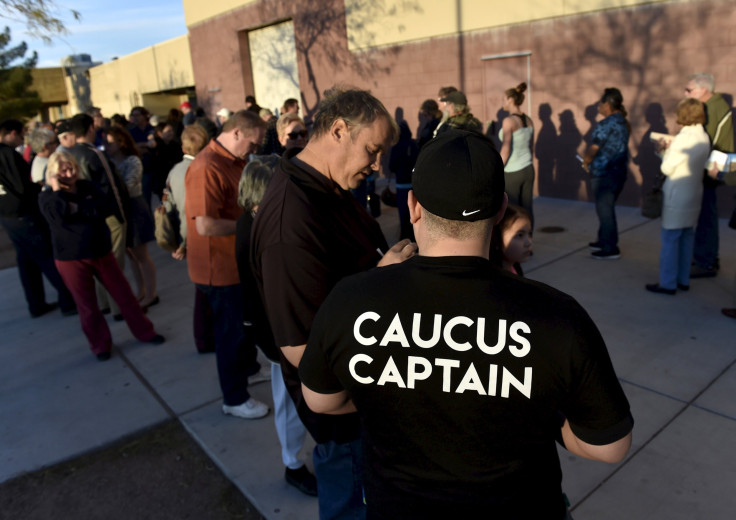What Happens In Vegas May Carry On To Washington: Nevada Plays Key Role In 2020 Elections

KEY POINTS
- The Nevada Caucus is less than eight weeks away
- Dem. candidates have launched an aggressive ground game
- Nevada could prove to be a key swing state
Despite what the highly successful marketing campaign says, what happens in Vegas may not stay in Vegas during the 2020 election season. In fact, it may up spreading throughout the country. Nevada is proving to be something of a battleground state as candidates have already begun to make political and messaging inroads in the Silver State.
Reporting from the Las Vegas Review Journal reveals that Democratic candidates have already begun vigorously working their phone and ground games, ringing doorbells, making calls and doing everything they can to get their message out. At least nine are actively campaigning in Nevada, with the larger campaigns such as that of Vermont Senator Bernie Sanders deploying nearly 100 staff members on the ground. Las Vegas will also be hosting a Democratic Primary debate on Feb. 19.
On the right, many political forecasts have Trump and other GOP candidates campaigning hard in Nevada even after the pivotal Nevada Caucus on Feb. 22. While they have a keen interest in who the state selects on Caucus night, Trump has not yet visited Nevada.
State GOP Party Chairman Michael McDonald said the President and down-ballot candidates have little to worry about in the state. “Ninety-nine percent of Republicans in this state are behind the president,” McDonald said. “We have a good relationship with the first family.”
The Nevada Republican apparatus has opted to nix the caucus in favor of allowing the party’s central committee to vote to endorse Trump.
Nevada now serves as a key swing state in an election that many view as a referendum on the country’s soul. The late Nevada Senator Harry Reid said the state was the first true test for any Democrat seeking the presidency, claiming that Iowa and New Hampshire simply aren’t diverse enough to give an accurate portrayal of where party voters are leaning. The state currently carries six electoral college votes.
© Copyright IBTimes 2024. All rights reserved.





















